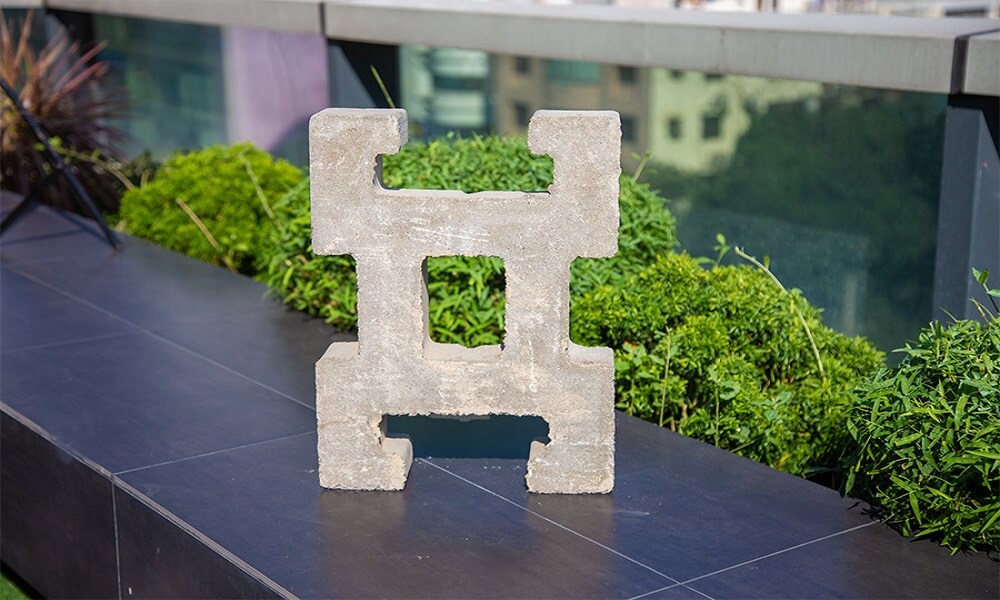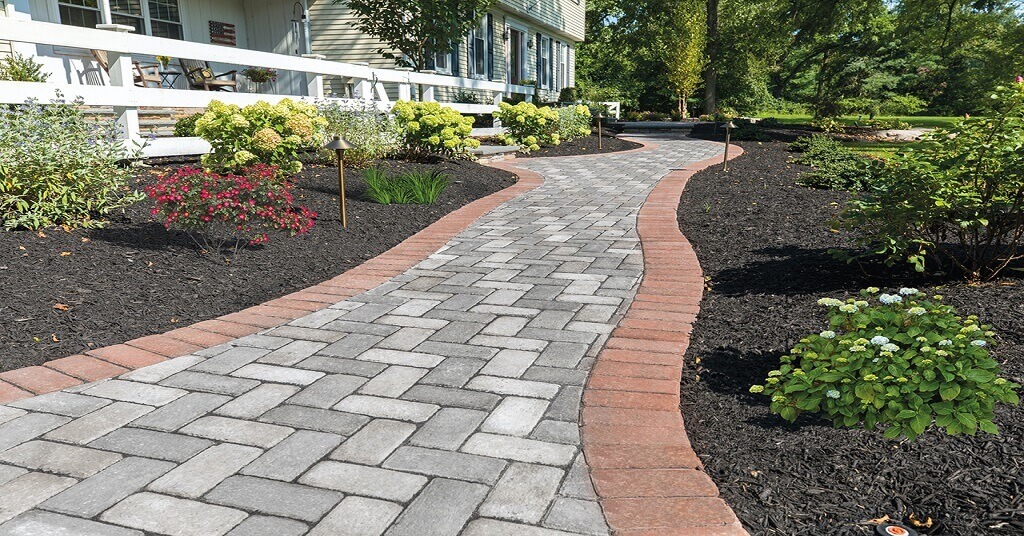Paver Block vs Concrete Block – Which Is Better for Construction in Bangladesh?

When it comes to construction materials in Bangladesh, two popular choices stand out — paver blocks and concrete blocks. Both are durable, cost-efficient, and eco-friendly alternatives to traditional clay bricks. However, they serve different purposes in the construction process.
If you’re planning a new project, understanding the difference between paver blocks and concrete blocks will help you make a smarter, long-term decision. This in-depth comparison explains their composition, cost, durability, environmental impact, and suitability for various types of projects across Bangladesh.
What Is a Paver Block?
A paver block is a precast concrete paving unit used to create durable, attractive surfaces such as walkways, driveways, and parking zones. They are available in various colors, patterns, and interlocking designs that add visual appeal to any outdoor area.
Common Uses of Paver Blocks
- Driveways, footpaths, and gardens
- Commercial parking zones
- Outdoor flooring in parks, malls, and factories
- City beautification and walkway projects
Key Benefits
Interlocking design: Increases surface strength and flexibility.
Aesthetic versatility: Multiple colors, textures, and shapes.
Easy maintenance: Replace only damaged pieces.
Non-slip and weather-resistant: Perfect for outdoor use.
Eco-friendly: Allows water percolation, reducing urban waterlogging.
What Is a Concrete Block?
A concrete block, also called a concrete masonry unit (CMU), is a precast rectangular block made from cement, sand, aggregates, and water. These blocks are used for wall construction, boundaries, and load-bearing structures due to their high strength and stability.
Common Uses of Concrete Blocks
- Building and partition walls
- Boundary and compound walls
- Industrial sheds and factory structures
- Guard rooms and retaining walls
Key Benefits
- High compressive strength: Suitable for vertical loads.
- Uniform shape: Saves plaster and mortar.
- Fire and sound resistance: Improves safety.
- Faster construction: Large size reduces joint work.
- Eco-friendly: Made without burning topsoil.

Paver Block vs Concrete Block – Key Differences
| Feature | Paver Block | Concrete Block |
|---|---|---|
| Main Use | Outdoor paving and flooring | Wall and structural construction |
| Load Type | Surface loads (vehicles, pedestrians) | Vertical load-bearing |
| Shape & Color | Interlocking, decorative, multi-color | Rectangular, plain, grey |
| Installation | Dry-laid on compacted sand base | Fixed with cement mortar |
| Repairability | Replace single block easily | Requires breaking wall section |
| Lifespan | 10–15 years | 20+ years |
| Best For | Driveways, pathways, landscapes | Walls, boundaries, buildings |
Summary:
- Use paver blocks for surfaces and concrete blocks for structures.
- Both are sustainable, strong, and suitable for Bangladesh’s construction climate.
Which One Is Better for Construction in Bangladesh?
| Use Case / Application | Recommended Material | Reason / Advantage |
|---|---|---|
| Residential Driveways & Walkways | Paver Block | Aesthetic, non-slip, easily replaceable |
| Boundary Walls & Compound Fences | Concrete Block | High structural strength and longevity |
| Industrial Parking & Loading Zones | Thick Paver Block | Handles heavy vehicle load effectively |
| Warehouse Walls / Guard Rooms | Concrete Block | Faster wall construction, solid structure |
| Garden & Landscape Decoration | Paver Block | Visually appealing and customizable |
| Footpaths & Public Walkways | Paver Block | Durable and decorative for civic use |
| Drainage or Retaining Structures | Concrete Block | Withstands pressure and heavy moisture |
| Multi-Storey Buildings | Concrete Block | Ideal for vertical load-bearing construction |
Verdict:
Choose paver blocks for surface applications and concrete blocks for structural projects in Bangladesh.
Cost Comparison (Bangladesh 2025 Update)
| Material Type | Unit of Measurement | Average Market Price (৳) | Maintenance Cost | Typical Lifespan | Cost-Effectiveness |
|---|---|---|---|---|---|
| Paver Block | Per square foot | ৳28 – ৳45 | Low (replace damaged blocks) | 10 – 15 years | Ideal for outdoor flooring |
| Concrete Block | Per piece | ৳75 – ৳110 | Very low | 20 + years | Ideal for wall & structural work |
Analysis Summary:
Paver blocks: Slightly higher cost per area but better aesthetics and easier maintenance.
Concrete blocks: More economical for walls; reduce plaster and mortar usage.
Both deliver excellent long-term value for different project types.
Durability, Maintenance, and Environmental Impact
| Parameter | Paver Block | Concrete Block |
|---|---|---|
| Durability | 10 – 15 years under regular surface use | 20+ years in structural use |
| Maintenance | Simple; replace individual blocks | Minimal; requires structural repair if cracked |
| Repairability | High; modular design | Low; repairs more complex |
| Weather Resistance | Excellent for outdoor & wet areas | Excellent for indoor & wall protection |
| Environmental Benefit | Allows water drainage, low carbon footprint | Uses industrial waste like fly ash |
| Recyclability | 100% reusable | 100% recyclable as aggregate |
| Sustainability Rating | Excellent for landscaping & urban design | Excellent for long-term building sustainability |
Result:
Both paver and concrete blocks are eco-friendly and outperform traditional clay bricks. Paver blocks excel in surface sustainability, while concrete blocks dominate structural durability.
Expert Recommendationt
For the best construction outcomes in Bangladesh:
- Use paver blocks for outdoor, aesthetic, and replaceable areas.
- Use concrete blocks for walls, foundations, and heavy structures.
- Always buy from a certified manufacturer ensuring strength, proper curing, and dimensional accuracy.
- Combining both materials often results in the most cost-effective and durable solution for large-scale developments.
FAQ
Concrete blocks are stronger for vertical structural loads, while paver blocks are stronger for surface loads like parking or footpaths.
No. Paver blocks are meant for ground surfaces. Walls should always use concrete or hollow blocks.
Yes. Concrete blocks cost less per wall area. Pavers may cost more per square foot but have lower maintenance costs.
Both perform excellently when properly manufactured. Pavers handle rain better; concrete blocks withstand heat and humidity well.
Paver blocks last around 10–15 years, while concrete blocks can easily last over 20 years.
Verdict: Paver vs Concrete Block – The Better Option for Your Needs
Both paver blocks and concrete blocks are excellent for modern construction in Bangladesh — but they serve different purposes.
Use paver blocks for outdoor spaces like driveways, walkways, and parking zones, where design and easy maintenance matter most.
Choose concrete blocks for walls, boundaries, and structural work, where strength and durability are key.
In short, the right choice depends on your project — pavers for beauty and flexibility, concrete blocks for solid, lasting construction.

